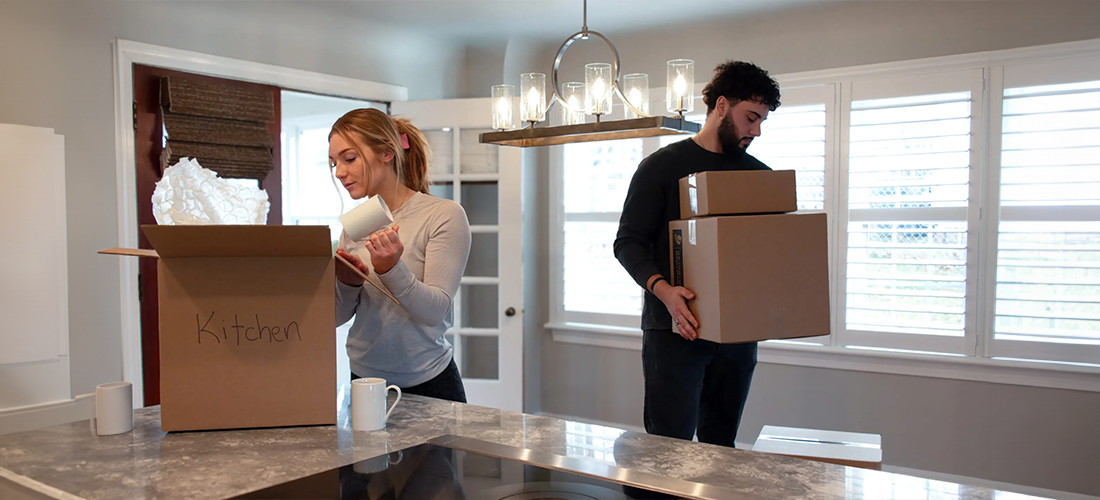There’s no denying that the cost of moving can be extremely expensive. While some of this can be avoided by doing the work yourself, many of us just don’t have the time or energy to move all of our belongings by ourselves. This is where a professional moving company can help out, and we’ve put together a few tips to ensure your budget goes its furthest.
1) Only Move What you Need
The best way to save money is to not spend it on things that won’t ultimately be used in the first place. If you take time in advance to declutter your belongings, it means you’ll save space in the moving truck, and on labor of loading and unloading it. You can even make money selling your items which can then be put towards other moving costs.
Craigslist and facebook marketplace are great for things you no longer have use for, and they're perfect options if you want large items gone. It’s an easy way to find other people willing to perform the labor of moving it from your home for free. Charities and thrift stores are another option for unwanted clothing, books, or toys. Keep an eye out for small shippable items, particularly those considered “vintage” or collectable - ebay is still tried, true, and profitable in this regard.
2) Choose the Right Company
One of the easiest ways to save money on moving is to find the best price, but this doesn’t mean you should automatically choose a company with the lowest one. A little research goes a long way, and you should take into consideration whether you need packing, storage, or unpacking services that different companies offer. Only pay for such things if you think they’ll be worthwhile and will make your life easier.
Gathering a few quotes (which should always be free) is the best way to estimate and gauge a fair price for your move, but a price that is drastically lower than others may be a sign of a scam. I’m sure some of you have heard some horror stories of the family who spent a fortune on their move, and then had to put it on credit cards because a company over charged them. Be sure to check online for customer reviews, awards, and always cross reference the company’s DOT number with the SMCSA.
When you find a company that provides the services you need and they tick all the boxes, you can use other quotes you’ve gathered at the final negation. You may also be able to get extra discounts if you are a veteran, student, or senior, so it never hurts to ask if you fall into one of these categories. The more you save, the more money you will have to spend on other expenses.
3) Avoid Busy Seasons
If you can, schedule your move in the fall or winter. Everyone enjoys being out in warmer months, and this is the time most people schedule their move. Because of this, the costs associated with moving are usually higher than other times of the year. If you have some flexibility on the date you move in, prices may be more reasonable in the “off” season. The same idea works if you have flexibility on the day of the week you can move. Tuesday through Thursday are likely less busy for moving companies than days closer to the weekend

4) Procure Free Boxes
Cardboard boxes are everywhere, a byproduct of essentially everything we own or purchase being shipped from the place that produces them. The only reason to buy brand new ones is if you’re short on time. So, if you have it, call local businesses to see if they have any used ones they’re willing to part with. Many will be happy to give them away or even set them aside for you, but don’t get discouraged if a few turn you down initially.
Liquor stores have sturdy, partitioned boxes for wine bottles and they’re perfect for glasses or other fragile items. Local schools are also worth contacting, as they constantly go through stationery and cleaning supplies. Many UHaul locations have a high-quality rotating selection of used boxes from people who’ve just moved, and it’s worth asking friends, neighbors, and family members whether or not they have any extras that are just sitting around.
5) Hold Off on New Purchases
Unless you’re one hundred percent sure you’ll need something immediately after moving in, it’s best to hold off on large purchases for a little while until you feel settled in your new home. You may find your first inclination to the optimal position, location, or size of furniture isn’t always what’s best suited in the end.
If you’re renting, your landlord may be more or less accommodating to certain things than you originally anticipated. Sometimes appliances are just a wee-bit too large or small. Long story short, you never really know how you’ll ultimately use a space until you’re in it. While it often seems prudent, even fun, imagining yourself settled, you can often save money by waiting until you’re absolutely certain you truly are.








